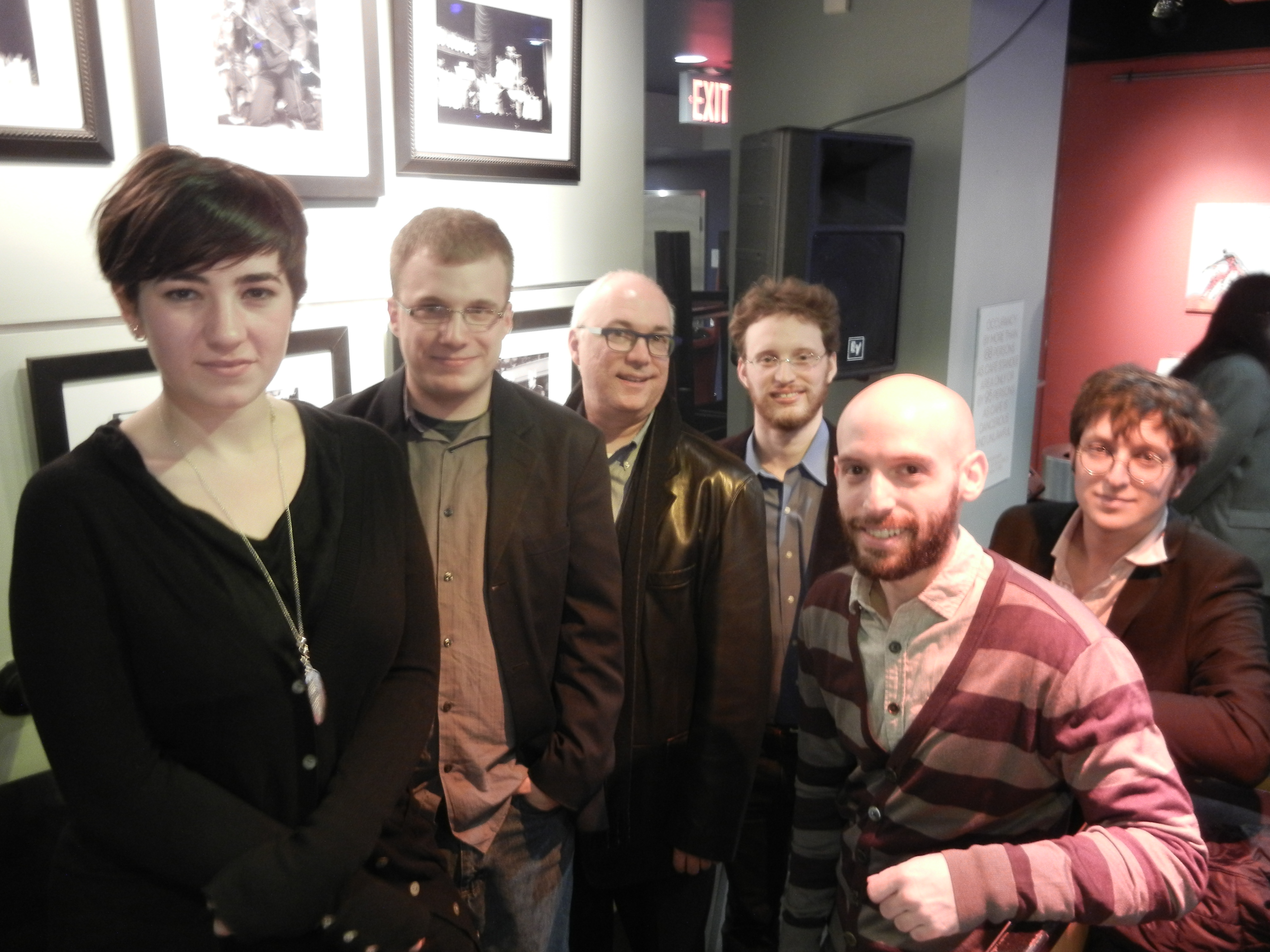Monday, December 3rd, 2012

Written by Tim Hansen
American Composers Forum held a friendly soiree in New York this November for ACF members, hosted by president John Nuechterlein. The night was an informal opportunity for members to meet and network with each other, learn about some of the upcoming opportunities ACF has in the pipes, and for Nuechterlein to connect with members in New York to ensure the organization is doing all it can to offer the kind of support composers in the city require.
The night was also a chance for Nuechterlein to formally congratulate the 2013 winners of the coveted Jerome Fund for New Music grants. This year saw six emerging composers from New York awarded funds from the Jerome Foundation, enabling them to create ambitious new works as well as offering a significant professional boost in their careers.
The six composers, Jeremy Beck, Chris Cresswell, Masatora Goya, David Hertzberg, Eric Nathan, and Danielle Schwob (who were awarded the grants along with Minnesotans Christopher Danforth, Alex Freeman, Asako Hirabayashi, and Heath Matthews), are a tiny representation of the diversity to be found in New York composers: some are native New Yorkers, some come from elsewhere in the country, whilst others, like Goya, have traveled a long way to call New York home.
Malaysian-born Goya, who grew up in Japan, moved to the United States in 2004 in what he freely admits was an attempt to divest himself of the ‘Japanese-ness’ in his art. “The first mission of young Japanese artists,” says Goya “tends to be how to make their work non-Japanese, and I wasn’t an exception.” Since World War II, Goya says, Japan has made a conscious effort to downplay traditional theatre, art, and music in favor of European or American trends, and, as a result “young people don’t appreciate the old stuff, or they even despise it”.
In his efforts to adopt a more “American” approach to composing, Goya immersed himself in study of what is arguably New York’s most distinctive cultural export: music theater. Assimilating into US culture however, proved to be more trying than Goya anticipated due to the language barrier. “For the first few years, I struggled with this ‘split personality issue,’ between English-speaking-me, who [had the vocabulary of a] 5 year old, and Japanese-speaking-me, fully educated with a BA in sociology. I needed to accept this fact and learn to simplify and ‘dumb down’ the way I think, in order to match my language skills.”
Over the years though, Goya has come to accept that there is an innate Japanese quality to his work that will never fully leave him. As such, Goya no longer attempts to disguise his roots. “No matter how hard we Japanese may try, we are intrinsically Asian and belong to a different culture. I think I have come to find my way by magnifying the difference, rather than by assimilating myself into something else I haven’t naturally acquired.”
The JFund then, was a perfect opportunity for someone like Goya: a talented emerging artist who had been dedicatedly engaged in his discipline for years and yet still lacked professional recognition. Then this summer, Goya successfully premiered a new work for guitar and flute. On the tails of this achievement, he began discussion with the duo about embarking on a larger, more ambitious project. Although he knew about the JFund for a number of years, this was the first year he was eligible to apply, and since the closing date was only a few weeks away, Goya and his musicians applied together: successfully, as it turns out.
“I felt very excited and humbled when I heard that I had been chosen,” says Goya. “I had had no major recognition before, and was wondering about how I should continue as a composer. It definitely motivated me to keep on writing.”